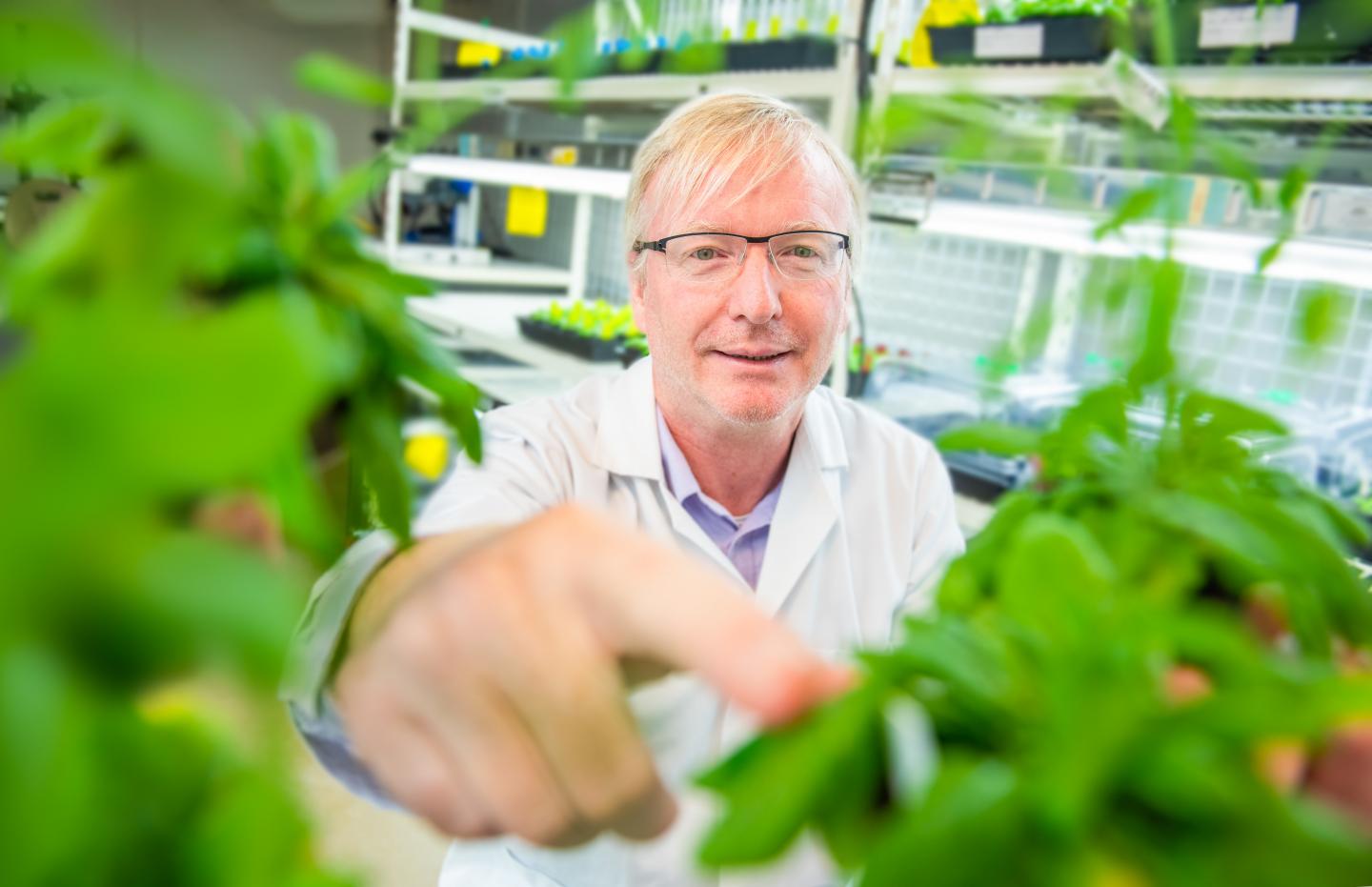
Credit: La Trobe University
La Trobe University-led research has found that plants are extremely sensitive to touch and that repeated touching can significantly retard growth.
The findings, just published in The Plant Journal, could lead to new approaches to optimising plant growth and productivity – from field-based farming to intensive horticulture production.
Research Director of the La Trobe Institute for Agriculture and Food at AgriBio, Professor Jim Whelan, who led the research, said that even the slightest touch activates a major genetic defense response which, if repeated, slows down plant growth.
“The lightest touch from a human, animal, insect, or even plants touching each other in the wind, triggers a huge gene response in the plant,” Professor Whelan said.
“Within 30 minutes of being touched, 10 per cent of the plant’s genome is altered.
“This involves a huge expenditure of energy which is taken away from plant growth. If the touching is repeated, then plant growth is reduced by up to 30 per cent.”
Co-author from La Trobe Dr Yan Wang said that while we don’t yet know why plants react so strongly to touch, the new research findings have led to a deeper understanding of the genetic defence mechanisms involved – opening up new approaches to reducing sensitivity and optimising growth.
“We know that when an insect lands on a plant, genes are activated preparing the plant to defend itself against being eaten,” Dr Yang said. “However, insects are also beneficial, so how do plants distinguish between friend and foe?
“Likewise, when plants grow so close together that they touch one another, the retarded growth defence response may optimise access to sunlight.
“So, for optimal growth, the density of planting can be matched with resource input.”
Professor Whelan said with this deeper understanding of the genetic mechanisms involved, it may be possible to identify and breed plant varieties which are less touch sensitive while retaining their sensitivity to other factors such as cold and heat.
The research was carried out using Thale Cress – Arabidopsis thaliana – though it is likely to be applicable to most plants and crops.
Next steps in the research will be to test touch response in crop species and to look at the potential consequences of breeding plants which are less touch sensitive.
“As we don’t understand why plants display such a strong defence response to touch, if we are to breed less touch-sensitive varieties, we need to first understand what some of the consequences might be,” Professor Whelan said.
“For example, could touch-resistant plants be more susceptible to disease because a crucial defence mechanism has been removed?”
###
Mitochondrial Function Modulates Touch Signalling in Arabidopsis thaliana was published in The Plant Journal. doi: 10.1111/tpj.14183
Media Contact
Claire Bowers
[email protected]
61-437-279-903
Original Source
https:/
Related Journal Article
http://dx.




